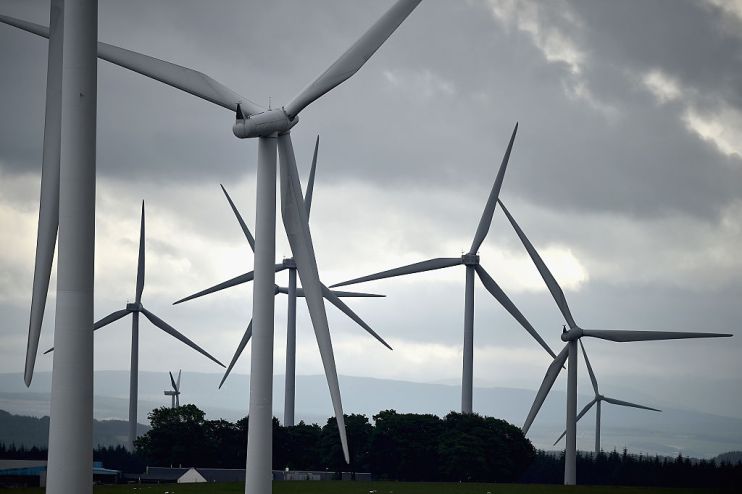UK government to allow new onshore wind farm subsidies

Onshore wind farms will be eligible for subsidies for the first time since 2016 from next year.
This was announced with details on the next stage of the Contracts for Differences scheme which launches next year.
However, the government has stressed new projects in England will only go ahead with the consent of local communities.
“The government is pressing ahead with action to meet our net zero emissions target quickly and at lowest cost to consumers and businesses,” said Hugh McNeal, boss of RenewablesUK.
The 2050 carbon neutral target was enshrined in law by Theresa May shortly before she left office last year.
“Backing cheap renewables is a clear example of the practical action to tackle climate change that the public is demanding, and this will speed up the transition to a net zero economy,” McNeal added.
Advocates of onshore wind claim it offers a clean source of energy without importing fossil fuels.
However, critics argue it is an unreliable source if wind conditions are not right, meaning costs cannot be justified.
Sign up to City A.M.’s Midday Update newsletter, delivered to your inbox every lunchtime
Previous projects have also drawn a backlash from local residents.
The latest round will also be open to solar power, floating offshore wind farms and will facilitate the development of energy storage.
Jim Smith, Managing Director of SSE Renewables, welcomed the announcement.
“The UK’s new ambition to reach net zero carbon emissions by 2050 will require a huge amount of additional renewable energy generation annually in order to meet that target, so it makes absolute sent that the next round of CfD auctions should be opened up to additional sources of scalable renewable generation, in particular onshore wind energy,” he said.
Turbulent history
Former Prime Minister David Cameron phased out subsidies from 2016.
This followed a backlash from his MPs when he supported onshore wind during the 2010-2015 coalition government.
The decision was also controversial in Scotland where a large number of projects were planned.
The UK will have to move away from fossil fuels towards alternative, cleaner, energy sources.
As their costs have fallen, the UK has stopped subsidising offshore wind power as larger projects come online around the UK.
A new generation of nuclear power stations is planned and research is going on into new sources such as fusion.